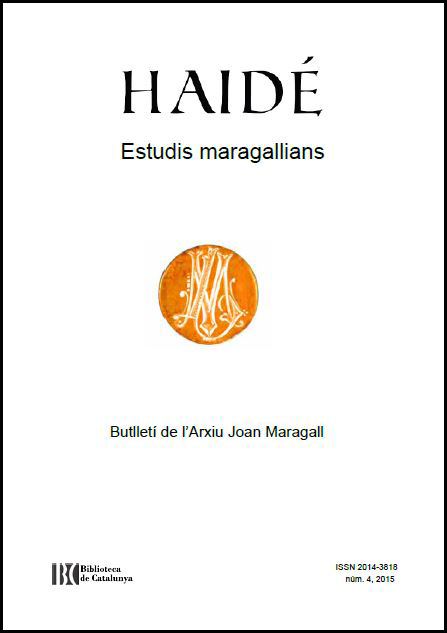«Que és llarga l'eternitat». Sobre la ironia en Joan Maragall
Article Sidebar

Main Article Content
Aquest article examina l’ús de la ironia en dos poemes de Joan Maragall, «La fi d’en Serrallonga» i el Comte Arnau. En el primer, en el diàleg que s’estableix entre el bandoler i el capellà, l’obcecació del religiós propicia que el condemnat a mort se’n burli i, amb l’ús de la ironia, tingui l’última paraula. En el segon, la redacció en tres fases i els canvis de perspectiva del poeta després de la primera part del poema van situar l’heroi en situació de víctima del seu plantejament primer.
This article examines the use of irony in two poems by Joan Maragall: «La fi d’en Serrallonga» and the Count Arnau. In the former, the priest’s stubbornness prompts the bandit, who has been condemned to death, to poke fun at him and, ironically, have the last word. In the second, the fact that the text is structured in three phases and that the poet changes perspective after the first part of the poem parts makes the hero the victim of the initial situation.